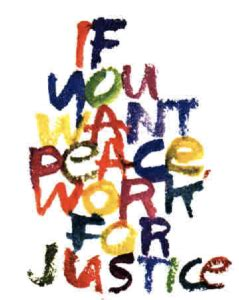On the Verdict of Supreme Court on Dara Singh’s Life Imprisonment
A Plea on the eve of India's Republic 2011
On the 21st January 2011, exactly twelve years after the Graham Staines and his two young boys Philip (10yrs) and Timothy (6yrs) were burnt alive in their Jeep by the ilk of Dara Singh and the other fundamentalists, the Supreme Court of India upheld the verdict of the Orissa High Court and granted life sentence instead of the death sentence granted by the lower court of law to Dara Singh. As they declared the judgement, Justice P.Sathasivam and Justice B.S. Chauhan, the honourable bench of jurists further commented that
“In the case on hand, though Graham Staines and his two minor sons were burnt to death while they were sleeping inside a station wagon at Manoharpur, the intention was to teach a lesson to Graham Staines about his religious activities, namely, converting poor tribals to Christianity… It is undisputed that there is no justification for interfering in someone’s belief by way of use of force, provocation, conversion, and incitement or upon a flawed premise that one religion is better than the other. It strikes at the very root of the orderly society, which the founding fathers of our Constitution dreamt of”.[1]
Forgiveness to what extent? Church leaders across the denominations welcomed the judgement of life sentence to the cruel killer Dara Singh, for they have all said that their theological persuasions teach them to forgive and not to kill anyone, for they believe that in the course of time, the guilty can turn good as there is power in the ideal of forgiveness. All the more some Churches have even gone to the extent of relating this curtailing of death penalty to opposing abortion in their theology, for they all affirm life and not killing or death of life.
My initial impulses on hearing about the judgement of the Supreme Court, is what a grave injustice the highest courts of law in the country have done for they have pitied with the guilty killer and cut down the punishment from death to life imprisonment. How can the Supreme Court spare a fundamentalist who is bloodthirsty and is all out to kill anyone on false prejudices? Death penalty for such crimes should have been pronounced by the highest court of law in India.
- Moral Victory for Fundamentalist Forces: Burning alive three people, which includes two children deserves a death penalty. Although one cannot bring back the lives of the three that were burnt by penalizing the murderer with death penalty, penalizing with a death penalty would have been a learning lesson for others not to indulge in heinous activities such as this. Now the fundamentalist forces think this verdict as a moral victory to them, for they think can take law into their hands and execute it at their leisure, for they know that it is their own colour of people that are there in the judiciary and legislature and a mere penalty would be imposed for such crimes of hate.
- The Wages of sin is Death: Pronouncing death penalty is not a ‘tooth for tooth’ theology, for the perspective of Christian theology is grounded on forgiveness virtues. However, God does not take sides with those that commit crimes of death and simply leave them scot-free. For I think God, in whom we affirm and believe is a God who exercises justice, which I mean is to take them into task those that involve in injustice. By Christ’s victory over death, Christ has chained all the forces of evil and injustice to death in his grave and proclaimed new-life over against it. So I believe, people who are involved in acts of injustice are prone to death, be it pronounced in the court of law or in any other form. Christian theology surrounds around life and life affirming channels, subsequently meaning to reject and crucify all the forces of death. God is going to pronounce the judgement, where righteous will be blessed and the unjust will be punished. The wages of sin is indeed death, and no better act can be called a sin than the killing of three innocent people on the pretext of forceful conversions.
- No one can take law into their own hands: Assuming that there were forceful conversions (the Wadhwa Commission has clearly indicated that no incidence of forceful conversion took place in this particular incidence), the honourable jurists callous comments that ‘to teach lesson to Graham Staines’ was something unwarranted of a learned jury. To teach a lesson, if every one starts killing the others I think Indian society will be left with none except the killers, on the contrary Indian ethos are built on the values of tolerance and non-violence. Hope the Jury would take back their comments on this judgement.
- Are the Dalit & Tribal Communities in India prone to forceful conversions? This verdict is against the Dalit & Tribal sentiments in India. For the jury has assumed that these communities do not have any brains in choosing their spirituality, and therefore are taking on them these external religions forcefully and for want of meeting some temporary needs. For the jury has projected Dara Singh as the messiah of Tribal communities from preventing them from the religious conversions, which is very unfortunate.
In the light of this discussion, I think the court of law needs to make a review on their verdict of upholding life sentence to Dara Singh instead of death penalty, if at the fabric of secularism is to be upheld. Staines and his two sons are the martyrs of secularism in India, and it’s high time that the unjust forces of fundamentalism and communalism need to be buried. Let no other Dara Singh spiral and arise in this our country of ours.
[1] http://www.deccanchronicle.com/dc-comment/conversion-factor-022 as used by Fr. Dominic Emmanuel in his opinion piece.


